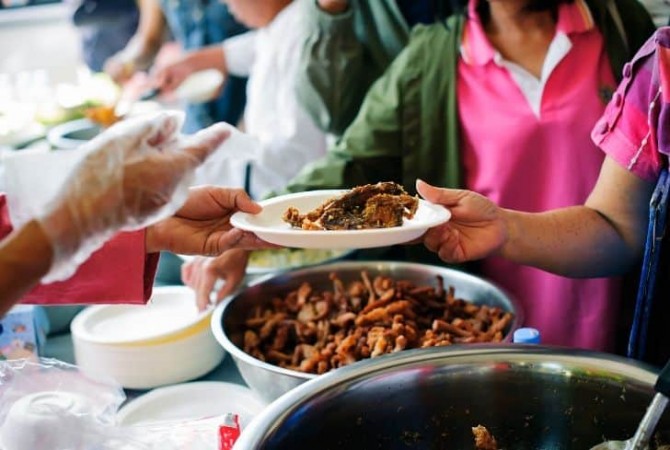
Food security is a crucial issue that affects millions of people around the world. Ensuring that everyone has access to safe, nutritious, and sufficient food is a complex challenge that requires comprehensive solutions. In this article, we will explore the various aspects of food security, the factors that contribute to its challenges, and the importance of addressing this issue on a global scale.
1. Introduction: Understanding Food Security: Food security refers to the state where all individuals have physical, social, and economic access to sufficient, safe, and nutritious food that meets their dietary needs and preferences for an active and healthy life. It encompasses four dimensions: availability, accessibility, utilization, and stability.
2. The Dimensions of Food Security
2.1 Availability of Food: The availability of food refers to the sufficient production, distribution, and supply of food to meet the population's needs. It involves factors such as agricultural productivity, technological advancements, and food storage capabilities.
2.2 Accessibility of Food: Accessibility relates to the ability of individuals to obtain food economically, physically, and socially. It takes into account factors such as income levels, affordability, transportation infrastructure, and social barriers that may limit access to food.
2.3 Utilization of Food: Utilization refers to the utilization of food by individuals and communities to meet their nutritional requirements. It involves aspects such as food safety, hygiene, cultural preferences, and dietary diversity.
2.4 Stability of the Food Supply: Stability of the food supply focuses on the consistency and reliability of food availability over time. It encompasses factors like market fluctuations, price volatility, and the resilience of food systems in the face of shocks and disruptions.
3. Factors Contributing to Food Insecurity: Several factors contribute to food insecurity and pose challenges to achieving food security globally.
3.1 Poverty and Inequality: Poverty and inequality are significant drivers of food insecurity. Limited access to resources, such as land, credit, and education, can prevent individuals from producing or purchasing an adequate amount of food.
3.2 Climate Change and Natural Disasters: Climate change and natural disasters have a profound impact on agricultural productivity and food systems. Extreme weather events, such as droughts, floods, and heatwaves, can destroy crops, disrupt supply chains, and lead to food shortages.
3.3 Conflict and Political Instability: Conflict and political instability often result in the displacement of people, the destruction of infrastructure, and the disruption of food production and distribution. These conditions create food insecurity and exacerbate the vulnerability of affected populations.
3.4 Lack of Agricultural Infrastructure: Inadequate agricultural infrastructure, including irrigation systems, storage facilities, and transportation networks, can hinder the efficient production, distribution, and utilization of food. Limited access to technology and agricultural inputs further exacerbates the challenges.
4. The Impact of Food Insecurity: Food insecurity has far-reaching consequences that extend beyond hunger and malnutrition.
4.1 Malnutrition and Health Issues: Insufficient access to nutritious food leads to malnutrition, which affects physical and cognitive development, especially in children. Malnutrition increases the risk of diseases and weakens immune systems, making individuals more susceptible to illnesses.
4.2 Economic Consequences: Food insecurity hampers economic development by reducing productivity and hindering human capital formation. Malnourished individuals are less productive, and the costs of healthcare and lost workdays due to illness impose a burden on individuals, communities, and economies.
4.3 Social and Political Implications: Food insecurity can create social unrest, exacerbate existing inequalities, and contribute to social and political instability. It can lead to migration, conflicts over scarce resources, and increased dependency on external aid.
5. Promoting Food Security: Strategies and Initiatives: Addressing food security requires a multi-faceted approach involving various strategies and initiatives.
5.1 Sustainable Agricultural Practices: Promoting sustainable agricultural practices, such as agroecology, organic farming, and precision agriculture, can enhance productivity while preserving natural resources and minimizing environmental impact.
5.2 Investment in Rural Development: Investing in rural development, including infrastructure, education, and healthcare services, can improve agricultural productivity, create employment opportunities, and reduce poverty in rural areas.
5.3 Enhancing Market Access: Facilitating access to markets, improving value chains, and promoting fair trade practices can help smallholder farmers and producers earn a fair income, reduce post-harvest losses, and ensure that food reaches consumers efficiently.
5.4 Strengthening Social Safety Nets: Establishing social safety nets, such as cash transfer programs, school feeding programs, and nutrition education initiatives, can provide a safety net for vulnerable populations, ensuring their access to nutritious food during challenging times.
6. The Role of International Cooperation: Addressing food security requires collaboration and cooperation at the international level. Governments, international organizations, non-governmental organizations (NGOs), and the private sector must work together to share knowledge, resources, and expertise to implement effective policies and programs.
7. Conclusion: Food security remains a special challenge that affects millions of people worldwide. By addressing the various dimensions of food security, considering the factors contributing to food insecurity, and implementing strategies to promote food security, we can work towards a future where everyone has access to safe, nutritious, and sufficient food.
Badrinath Temple: A Historical Guide to Visit and Worship
Kedarnath Temple: A Sacred Abode of Lord Shiva
Mansukh Mandaviya urges states to accord priority to TB elimination